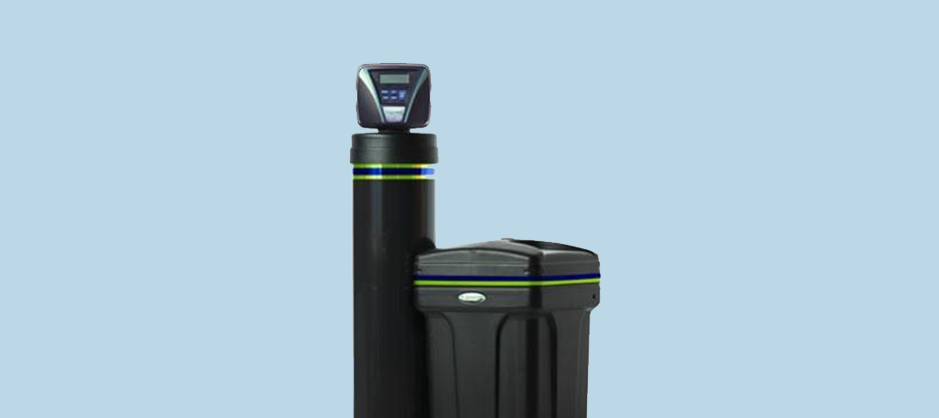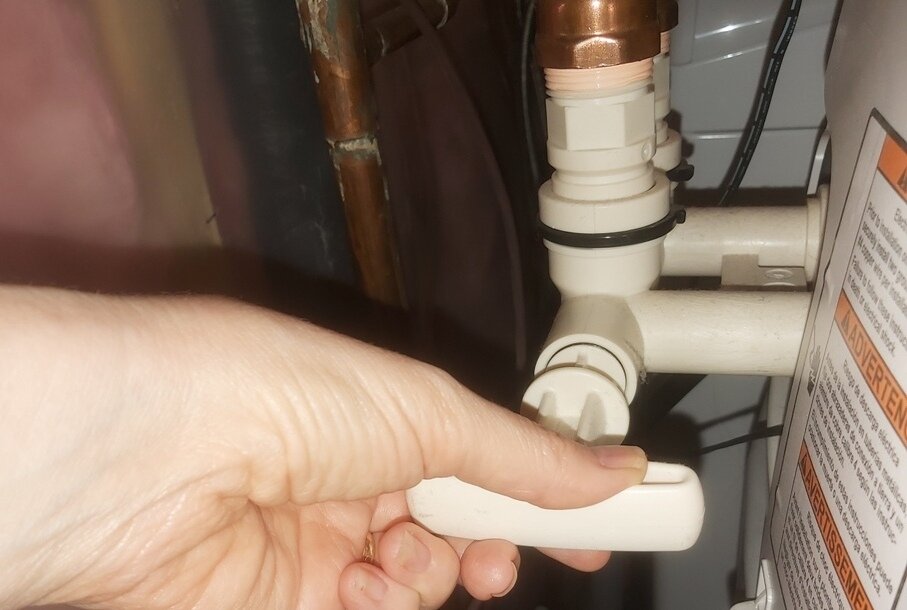When maintaining a vibrant garden, water quality plays a crucial role. If you have a water softener at home, you may wonder whether softened water is safe for your garden. In this guide, we'll explore the effects of softened water on plants and provide alternative solutions for keeping your garden thriving.
Contact the professional at WaterSmart if you have questions about your water softener or to get a new one installed! Ours are Canadian made!
1. What is Softened Water?
Softened water is water that has undergone a treatment process to remove hard minerals like calcium and magnesium.
Water softeners typically use sodium or potassium to replace these minerals, preventing scale buildup in pipes and appliances.
This process, known as ion exchange, helps extend the lifespan of your plumbing system and water-using appliances, while also making cleaning more effective due to reduced soap scum.
While softened water is ideal for home use, using it in your garden may have unintended consequences.
The added sodium can accumulate in soil over time, potentially harming plant roots and affecting soil structure. Potassium-based softeners may be slightly more plant-friendly, but they still require caution.
Understanding its properties is essential before deciding whether it’s right for your plants, especially if you’re growing sensitive species or maintaining a vegetable garden.
Testing your soil and exploring alternatives like bypass valves or separate outdoor water lines can help you make an informed decision.
2. How Softened Water Affects Your Garden
Using softened water in your garden can lead to several challenges, including:
Sodium Buildup
When water is softened using sodium, the excess sodium ions can gradually build up in the soil, especially if softened water is used regularly for irrigation.
This accumulation alters the soil's natural chemical balance, making it more difficult for plant roots to absorb essential nutrients like calcium, magnesium, and potassium. It also affects the plant's ability to take up water efficiently, potentially leading to dehydration even when the soil appears moist.
Over time, this can create a hostile growing environment, particularly for salt-sensitive plants.
Soil Structure Damage
Excess sodium doesn't just impact plant health—it also affects the soil itself. High sodium levels can displace other important minerals in the soil, leading to the breakdown of soil aggregates.
This results in a compacted, dense soil structure that lacks proper aeration and has poor drainage. Without adequate pore space, roots struggle to access oxygen and water, ultimately hindering plant growth.
In severe cases, this damage can lead to erosion and long-term fertility issues in garden beds and lawns.
Plant Stress
Many plants, especially vegetables, flowers, and ornamental shrubs, are highly sensitive to elevated sodium levels.
Symptoms of sodium stress may include leaf burn—browning at the tips and edges—yellowing leaves (chlorosis), and stunted or distorted growth. Plants under sodium stress often appear wilted or weak, even when they’ve been watered regularly.
Continued exposure to softened water can weaken their natural defenses, making them more vulnerable to pests, diseases, and environmental stressors like heat and drought.
Some salt-tolerant plants may be less affected, but most garden vegetables, flowers, and shrubs will struggle with softened water.
3. Hard Water vs. Softened Water for Plants
Hard water, despite its drawbacks, often contains beneficial minerals like calcium and magnesium that plants need to grow strong and healthy. These minerals can contribute to soil fertility, providing essential nutrients that promote plant development.
Additionally, the slight alkalinity of hard water can be beneficial for certain plants that thrive in less acidic soil.
In contrast, softened water lacks these valuable nutrients. Instead, it contains sodium or potassium, which can negatively impact plant growth.
Sodium in particular can cause soil degradation by breaking down its structure, leading to poor drainage and reduced oxygen availability for plant roots. Over time, this can lead to nutrient deficiencies and reduced plant vitality.
While some salt-tolerant plants may adapt to the presence of sodium, most garden vegetables, flowers, and shrubs will struggle to thrive when exposed to softened water consistently.
It's important to consider these effects before using softened water for your gardening needs.
4. Best Water Softeners for Gardening
If you need to soften water but still want to use it for gardening, consider these alternatives to minimize harm to your plants and soil:
Potassium-Based Softeners
Instead of sodium, these use potassium chloride, which is less harmful to plants and can even act as a mild fertilizer in small amounts. They’re a better option if you must use softened water outdoors occasionally.
Dual-Tank Water Softeners
Some advanced systems feature a bypass valve or dual-tank setup that lets you divert untreated water for outdoor use, preserving soil health and plant vitality.
Reverse Osmosis Systems
While not technically water softeners, RO systems remove sodium, minerals, and other impurities, offering pure water that's ideal for sensitive plants.
For larger gardens or frequent watering needs, installing a separate outdoor tap connected to the main, untreated water line is often the most effective and economical long-term solution.
This ensures your garden thrives without compromising your household’s softened water benefits.
5. Alternative Watering Solutions
If softened water isn’t suitable, there are other options to ensure your plants receive the best hydration:
Rainwater Collection: Install a rain barrel to capture free, nutrient-rich rainwater.
Well Water or Untreated Tap Water: If available, use untreated water sources for your garden.
Greywater Systems: Reuse household water from baths or sinks (excluding kitchen and toilet water) to conserve water while irrigating non-edible plants.
While softened water is excellent for preventing scale buildup in your home, it’s generally not ideal for gardens due to its high sodium content. Hard water or alternative sources like rainwater are often better choices for keeping your plants healthy.
If you’re considering a water softener and want to garden without issues, explore potassium-based models or install a bypass valve for untreated water access.
This way, you can enjoy the benefits of softened water at home while ensuring your garden thrives.
Still Have Questions About Softened Water in Your Garden?
Need a water softener that works for your household and garden?
Every water softener we offer is made in Canada, and basic installation is FREE with the purchase of any new WaterSmart water softener!
And with our financing option, you can easily purchase a water softener, Canada wide.
Contact us to find the best solution for your needs.
“So happy with the service call for our water softener that leaked during the last regeneration. Paul arrived on time, carefully assessed the problem, and quickly cleared the problem, (which was a blockage in the drain pipe from the softener to the floor drain). We have been repeat customers of WaterSmart for some time. Every experience, including today’s, has been very good - from making the appointment to the excellent work done. Thank you very much!”







